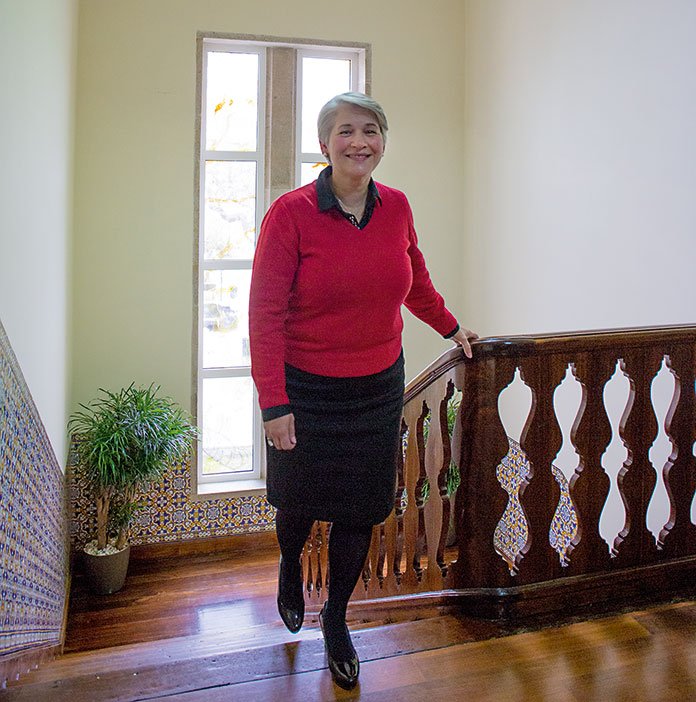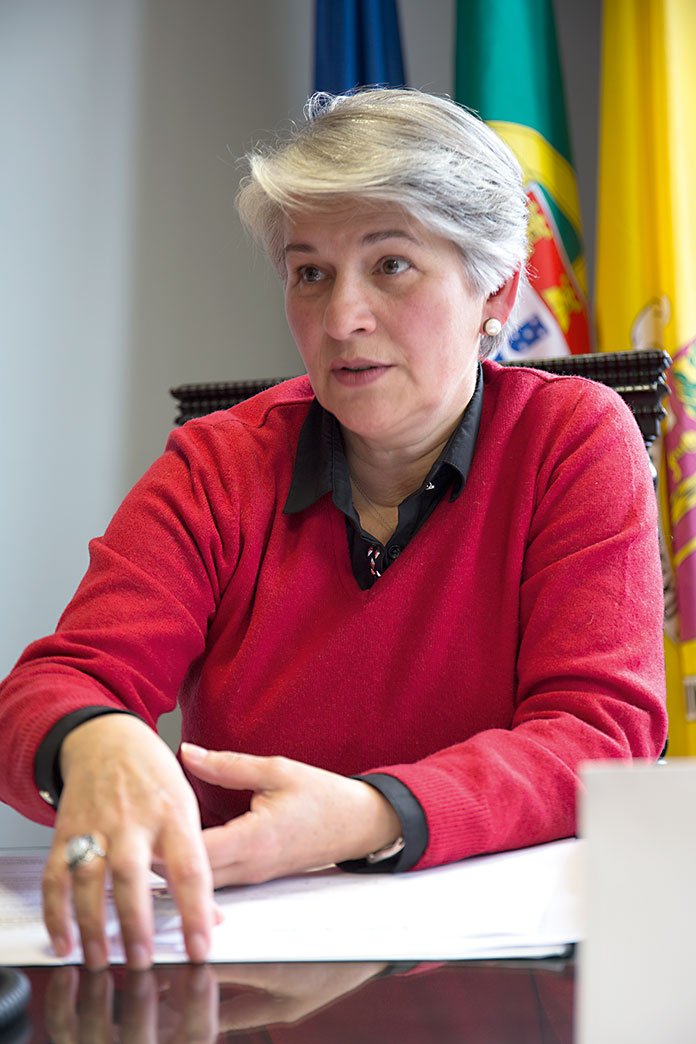
You
were born in Mozambique.
I was born in Mozambique. I was there until I was 11 years old.
What
memories do you still have of there?
Good ones, very good ones (she laughs). I was born in Vila Pery – now Chimoio –
and when I was three years old, I went to live in Manica, which was very close
to the border with Rhodesia. I attended school until the 1st year of
the ciclo (what you’d call year 5 today). I came to
Portugal in 1974.
Have
you ever been back to Mozambique?
No. But I would really love to go back there, to show my family where I
lived.
Do you
remember playing with children there?
I remember. There is so much that is still so vivid. That’s why it’s sad
to go on to Google Maps to try to see it and realise that it
is badly damaged, that the streets have no tarmac... Differently from the past.
It was a town like Freixo; small, but it had everything.
And
then you came here (Freixo)...
When I got here, my parents and I went to Lagoaça. And, as we entered
that village, and saw all those low houses, all out in stone, my reaction was
very bad. As soon as I got to the entrance of that village, I said to my
father: «I’m not staying here!»
You
don’t think that way now though?
No, perish the thought! I wouldn’t change this for anything. But it was
the shock, the contrast, there was just no comparison. Then, for a long time,
and even today, I don’t speak much about my childhood, because people didn’t
understand very well. There was that thing of «you’ve come back» thing. No, I
haven’t come back, I’m a refugee, I haven’t returned – because I was born there
– but that’s what they were all called: ‘returnees’.
What
caused you to study management?
Ever since I was little, in Mozambique, I had been influenced by a lady
who worked in a bank. My father would send me to the bank, with his messages,
and I loved going. There were men working there, and a single young woman, who
was Luísa, and I, I don’t know why, would look at her and imagine myself there,
like her. I remember one night the manager of the bank, Senhor Ferreirinha, was
at our house (Mozambique) and I told him: «When I grow up I want to go to work
for the bank like Luísa», and my father saying no, and me saying yes! I cried
my eyes out because my father was against me.
Even
going against your father’s wishes, you studied management?
I was a bank clerk. When I was in Freixo, giving classes the Caixa Geral
de Depósitos advertised a job. Well, I applied and I got the job. I was chosen
from the 48 applicants.
Did you
see yourself in Luísa’s shoes (from the bank in Mozambique)?
Yes, because I was the only woman there, in the middle of men.
What
did your father say?
My father was very happy because I got where I wanted to go and he was
very proud of me.
Maria
do Céu showed him that she could do it...
Yes... (she gets emotional).
You
left banking for politics...
I never imagined reaching retirement having always done the same thing.
In the meantime, a few years ago, at a change in term of office, I thought
about what was going to happen «this mayor is going to ruin everything».
Because until then the council had a very good financial department, and then
he (the new mayor) started screwing everything up. The council’s financial
department started to get in a very bad state, and now it will still take some
time to recover. It was that state, and the desire to do something that got me
excited about politics. In the 2009 local elections, the PSD candidate invited
me to be on the Municipal Council list, despite me having no ties with the
party and at the time supporting the ‘other side’. In these circumstances I had
to make a decision, but always from an honest perspective, both with those who
were inviting me and with the people on the list to which I belonged. I was
adamant: «I have been made an offer and I am going to accept it». Everyone
supported me. We held the elections. We didn’t win, and I was four years in the
opposition.
And
then?
Then I ran for mayoral office! The former candidate and mayor told me he
wasn’t putting himself forward again. In this context I was assertive: «if
you’re not doing it, I will! I ran, and I won!»
And how
has the experience been?
It’s like this: I was fully aware of the state the council was in, but I
understood that I had to do something...
«If anyone wants a place to
relax, to get out of the city, they can come to Freixo de Espada à Cinta»











